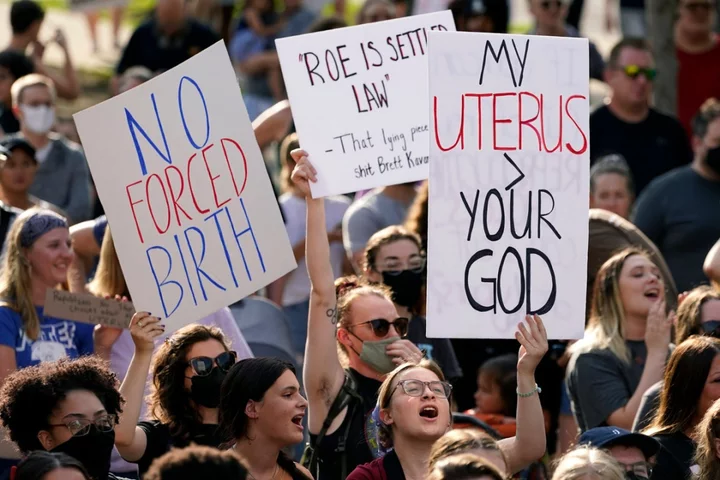
Iowa Republicans pass new bill banning almost all abortions after six weeks
Iowa’s Republican-led legislature has enacted a new bill prohibiting the vast majority of abortions after approximately six weeks of pregnancy. This comes just weeks after a deadlock in the Iowa Supreme Court that rendered a six-week abortion ban unenforceable. On Tuesday, however, legislators reconvened at the Iowa State Capitol and successfully passed a nearly identical set of restrictions on the procedure. Republican governor Kim Reynolds plans to sign the bill into law on Friday, her office said. “I believe the pro-life movement is the most important human rights cause of our time,” she said in a statement on Tuesday night. “The Iowa Supreme Court questioned whether this legislature would pass the same law they did in 2018, and today they have a clear answer. The voices of Iowans and their democratically elected representatives cannot be ignored any longer, and justice for the unborn should not be delayed.” Under the new Republican bill, abortions are permitted up until approximately six weeks of pregnancy – a timeframe that critics say could pass before many women are even aware of their pregnancies. The legislation does incorporate exceptions beyond this point, such as in cases of rape or incest, when the woman’s life is at significant risk, when she faces the possibility of certain permanent injuries, or when there are foetal abnormalities deemed “incompatible with life”. “Unborn people, in my opinion, are babies, and the government’s job is to protect the rights of every person, including babies,” Republican representative Brad Sherman said on the House floor. The neighbouring Republican-led states of Missouri, South Dakota and Wisconsin have already implemented stringent abortion bans, effectively prohibiting the procedure in almost all cases. Additionally, Nebraska recently passed a new ban at the 12-week mark. Illinois and Minnesota, which have Democratic leaderships, maintain permissive abortion laws and reports suggested these may emerge as potential destinations for Iowans seeking abortions. “If this bill becomes law, women will die in Iowa. Common sense has walked out the door,” Democrat representative Beth Wessel-Kroeschell told her colleagues on Tuesday night. “The ACLU of Iowa, Planned Parenthood, and the Emma Goldman Clinic remain committed to protecting the reproductive rights of Iowans to control their bodies and their lives, their health, and their safety – including filing a lawsuit to block this reckless, cruel law,” Mark Stringer, the executive director of ACLU’s Iowa chapter, said in a statement. Protesters gathered ahead of the vote at the capitol in Des Moines on Tuesday, holding signs that read “My Body, My Choice” and “Unborn Lives Matter”. Read More Iowa Legislature will take up 6-week abortion ban during special session Tuesday Republican presidential candidates jump to defend Iowa governor from Trump attacks Abortion numbers in Indiana drop amid ‘fear and uncertainty’ of possible state ban Republican presidential candidates jump to defend Iowa governor from Trump attacks Paraguay’s president-elect recommits to ties as Taiwan’s last ally in South America Thailand's Election Commission says top candidate for prime minister may have broken election law
2023-07-12 15:59

Nebraska woman pleads guilty to giving teen daughter abortion pills and helping bury fetus
A Nebraska mother pleaded guilty on Friday to giving her 17-year-old daughter medications to perform an abortion in 2022 and helping the teen burn and bury the fetus in a field. Jessica Burgess, 42, of Norfolk, was charged with breaking what was then the state’s ban on abortions after 20 weeks of gestation, as well as accused of falsely reporting and tampering with human skeletal remains, according to the Associated Press. Previous charges of concealing a death and performing an abortion without a medical license were missed as part of the plea deal. Burgess’s daughter, Celeste, now 18, has been charged as an adult and pleaded guilty in May to removing, concealing, or abandoning a dead body. The abortion took place before the Supreme Court overturn Roe v Wade and the constitutional right to an abortion in the summer of 2022. Police began investigating the case in late April of that year, according to the Lincoln Journal Star. The woman later told police Celeste had given birth to a stillborn baby in the shower, and that they put the body in a bag in their van then bured it with the help of a 22-year-old on a property the man’s parents owned, according to the paper. Celeste was 23 weeks or nearly six months pregnant at the time, according to medical records obtained by police, well past the state’s then 20-week abortion ban. Prosecutors obtained Facebook messages between the family members as part of their case. “(Celeste Burgess) talks about how she can’t wait to get the ‘thing’ out of her body and reaffirms with (Jessica Burgess) that they will burn the evidence afterwards,” a police detective wrote in court documents, describing the content of the messages. In May of 2023, Nebraska joined the many Republican-controlled states restricting abortion after Roe, and outlawed the procedure after 12 weeks. This is a breaking news story and will be updated with new information.
2023-07-11 03:28
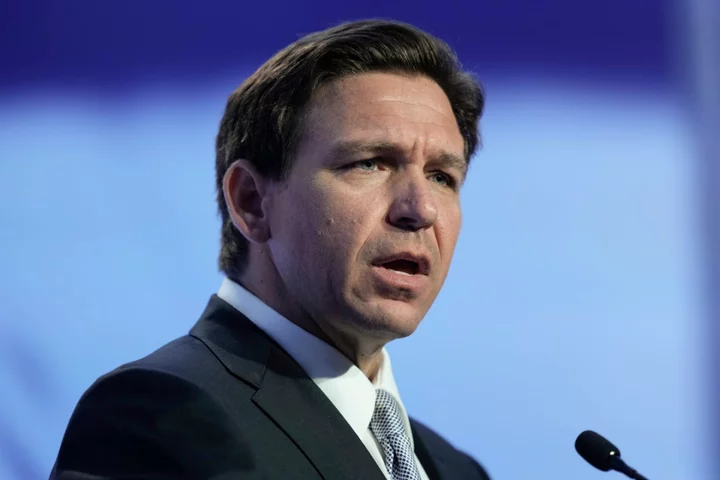
DeSantis campaign video crossed a line for gay right-wing pundits despite governor’s record on LGBT+ rights
Ron DeSantis has championed his record targeting LGBT+ people, particularly transgender youth, with a platform that has echoed in state legislatures across the US and in the halls of Congress and drawn widespread condemnation from human rights groups. The governor’s far-reaching platform targeting civil liberties and trans rights is fuelling his campaign for the 2024 Republican nomination for president, with a pledge to impose his agenda at the national level. At the end of Pride Month, his campaign shared a video clipping together past statements from his Republican rival Donald Trump celebrating Pride and vowing protections for LGBT+ rights, before cutting to a fast-paced series of headlines and comments labeling the DeSantis agenda “draconian”, a threat to “trans existence” and “totalitarianism in disguise,” with a series of images and quick edits that mirror far-right and authoritarian memes. That appeared to be the last straw for gay right-wing influencers, pundits and political organizations who have otherwise endorsed him. An anti-trans group with close ties to the DeSantis camp appears to have imploded over the video, with a Gays Against Groomers co-founder resigning in protest after the “extremely anti-gay” video. Despite appearing in a pro-DeSantis ad less than a year ago, David Leatherwood appears to be among several recent departures from the far-right group, with speculation that blowback over the latest video provided a pretext among now-former DeSantis boosters to step away after lagging poll numbers. Log Cabin Republicans called the video’s message “divisive and desperate”. “This old playbook has been tried in the past and has failed – repeatedly,” group president Charles Moran said in a statement. “Ron DeSantis and his team can’t tell the difference between commonsense gays and the radical Left gays. He, sadly, sees them all the same. His naive policy positions are dangerous and politically stupid.” Republican US Rep George Santos of New York, who had vocally supported the so-called “Don’t Say Gay” bill last year, now says he feels “used” by Mr DeSantis. “I used to think he was a great governor,” he told The Hill. “Now, I’m starting to think differently.” Former Trump adviser and ambassador Richard Grenell, who is gay, called the video “undeniably homophobic.” Caitlin Jenner, who appears in the video, said that the governor has “hit a new low”. “But he’s so desperate he’ll do anything to get ahead – that’s been the theme of his campaign,” she wrote. “You can’t win a general, let alone 2028 by going after people that are integral parts of the conservative movement!” In May, Mr DeSantis approved a slate of bills that restrict affirming healthcare for transgender minors and threaten access to care for trans adults, forbid people from using bathrooms that match their gender identity, target public drag performances, and prevent people from using their chosen pronouns in school. Last year, he signed a law barring trans women and girls from playing on public school teams that align with their gender. He also backed legislation derided by critics as the “Don’t Say Gay” bill prohibiting classroom discussion of issues related to gender and sexuality, sparking fears that its broad scope could be used to effectively block discussion of LGBT+ people, history and events from state schools, and threaten schools with potential lawsuits over perceived violations. The governor expanded the law to explicitly cover all grade levels this year. Florida’s surgeon general Joseph Ladapo has been accused of deliberately misrepresenting research surrounding gender-affirming care to promote state policy and health guidelines that health experts have labelled “incorrect and scientifically unfounded.” The governor’s former press secretary, Christina Pushaw, helped elevate the “groomer” smear alleging LGBT+ people of abusing children. She now works for his campaign. “Opposing the federal recognition of ‘Pride Month’ isn’t ‘homophobic.’ We wouldn’t support a month to celebrate straight people for sexual orientation, either,” she wrote in defence of the video on Twitter. “It’s unnecessary, divisive, pandering. In a country as vast and diverse as the USA, identity politics is poison.” Mr DeSantis himself has defended the video, telling far-right influencer Tami Lohren that the former president is “a pioneer in injecting gender ideology into the mainstream, where he was having men compete against women in his beauty pageants, I think that’s totally fair game.” “He’s now campaigning, saying the opposite, that he doesn’t think that you should have men competing in women’s things like athletics,” he added. The former president, meanwhile, has accelerated his campaign against trans people, including plans to strip federal funds from schools that discuss “gender ideology” and impose a national ban on trans women and girls participating in sports that match their gender. He also wants to direct the US Food and Drug Administration to study the effects of gender-affirming healthcare and so-called “trans ideology” on mental health and “violence”, amplifying a baseless narrative that trans people are responsible for violent attacks across the country. Mr Trump’s four years in office included banning trans people from openly serving in the US military and reversing federal guidance under the Civil Rights Act that protected trans people from employment discrimination. The US Department of Education during his administration also eliminated guidance that ensured protections for trans students, among a slate of other measures opposed by LGBT+ advocates. Read More DeSantis doubles down on ‘homophobic’ anti-Trump ad: ‘Totally fair game’ Federal judge partially blocks Florida’s ‘latest assault on the right to vote’ Pete Buttigieg takes down Ron DeSantis over ‘strange’ anti-LGBT campaign video with ‘oiled-up bodybuilders’ Florida schools remove books by John Milton and Toni Morrison and restrict Shakespeare under DeSantis rules Federal court halts Florida’s drag ban, calling it attempt to ‘suppress the speech’ rights of performers
2023-07-07 07:20
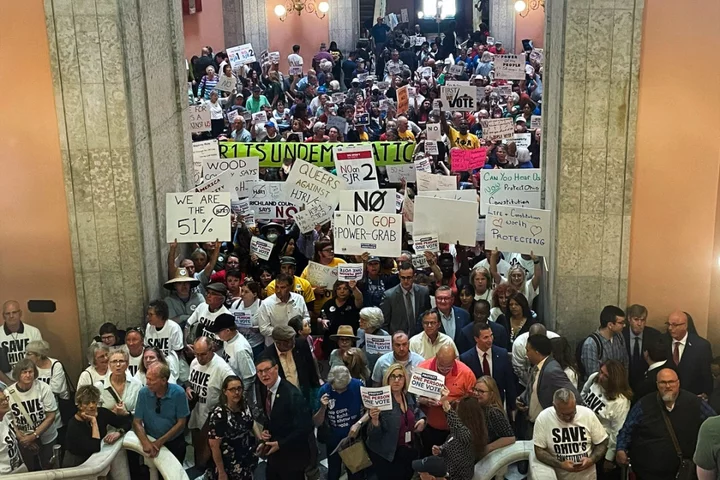
Ohio voters are likely to decide the future of abortion rights
Voters in Ohio will likely decide if the state’s constitution should enshrine the right to abortion care, after abortion rights advocates collected tens of thousands of signatures on a petition to put the issue on ballots this fall. If certified, those 710,000 signatures – roughly 300,000 more than required by state law – will place a proposed constitutional amendment asking whether “every individual has a right to make and carry out one’s reproductive decisions.” A statewide vote for abortion protections follows a wave of anti-abortion laws in the aftermath of the US Supreme Court’s decision to strike down a constitutional right to care last year. More than a dozen states, mostly across the entire US South, have effectively outlawed most abortions. But the Supreme Court decision to overturn the half-century precedent under Roe v Wade also fuelled efforts to protect abortion rights across the country, including in neighboring Michigan and Kentucky, where voters in both states voted to support abortion rights in ballot measures last year. After the Supreme Court’s ruling, Ohio lawmakers swiftly outlawed most abortion after roughly six weeks of pregnancy, a law that is currently suspended by a state court injunction but could be reinstated by the Ohio Supreme Court. A vote to enshrine abortion rights in the state’s constitution would effectively overrule any such law. Abortion rights advocates and providers have warned that Ohio’s ban, which does not include exceptions for pregnancies from rape or incest, ignited a healthcare crisis that endangered patients and their families across the state, forcing people to seek care hundreds of miles out of state and navigate complicated legal and medical minefields while experiencing pregnancy complications. The petition launched by Ohioans for Reproductive Freedom and Ohio Physicians for Reproductive Rights will head to the secretary of state, which has until 25 July to determine the validity of the signatures. The campaign launched with an open letter on 7 July of last year signed by hundreds of physicians rejecting the state’s anti-abortion law. “Over the past year, support for the amendment has grown exponentially thanks to our partners at [Ohioans for Reproductive Freedom], the thousands of volunteers who gathered signatures in communities across the state, and the hundreds of thousands of people who added their names to our petitions,” according to a statement from Dr Lauren Beene and Dr Marcela Azevedo, co-founders of Ohio Physicians for Reproductive Rights. “Today, the message we and they are sending is loud and clear: ‘let the people decide,’” they said. The campaign will magnify the role of Ohio – a state that voted for Donald Trump by more than 8 percentage points over Joe Biden in 2020 – in the 2024 presidential campaign and the renewed battle for abortion rights surrounding it, as Republican candidates and members of Congress weigh federal legislation that would outlaw or severely restrict abortion access nationwide. President Biden and Democratic candidates have signalled the central role that abortion rights protections will play in upcoming campaigns, alongside their warnings of a GOP-controlled White House and Congress legislating on abortion at the national level. Last year, a record number of voters in Kansas – a state that Mr Biden lost by more than 15 percentage points in 2020 – turned out for an election to reject a Republican-drafted amendment that would strip abortion rights from the state’s constitution, the first test for abortion rights put directly to voters after the ruling in Dobbs v Jackson Women’s Health Organization. That measure was shot down by nearly 20 percentage points, sending a resounding message that underscored the immense unpopularity of the Supreme Court’s decision. The president has repeatedly invoked that election victory in remarks supporting abortion rights in the months that followed, stating that the Supreme Court “practically dared women in this country to go to the ballot box and restore the right to choose,” and that anti-abortion lawmakers vastly underestimated how Americans would respond. Following the outcome in Kansas, Mr Biden pointed to the justices’ own writing in the Dobbs decision: “Women are not without electoral or political power.” “They don’t have a clue about the power of American women,” he said. “In Kansas, they found out women and men did exercise their electoral political power with a record turnout.” Read More Man sentenced to life in prison for rape of 10-year-old girl in Ohio abortion case that drew national attention Senator who once worked at a Planned Parenthood warns that Republicans are planning a national abortion ban One year after Roe v Wade fell, anti-abortion laws threaten millions. The battle for access is far from over
2023-07-06 22:54

Prime Minister Justin Trudeau begs Taylor Swift to bring Eras Tour to Canada
Justin Trudeau has asked Taylor Swift to extend her global tour to include Canada.
2023-07-06 19:28
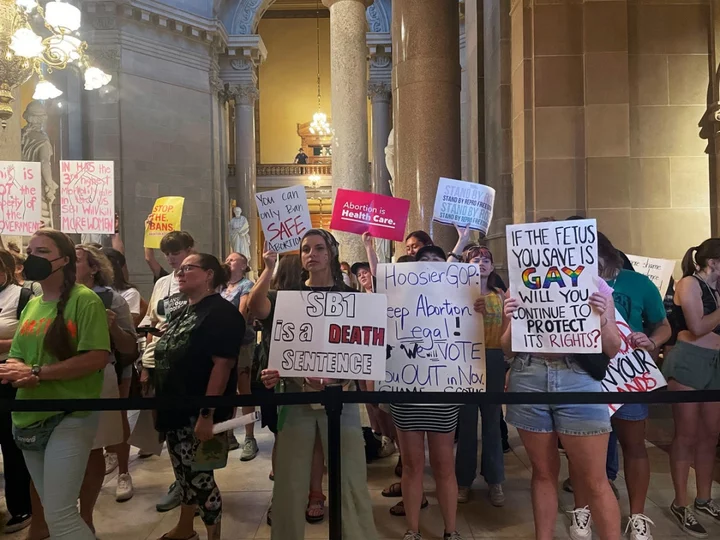
Abortion numbers in Indiana drop amid ‘fear and uncertainty’ of possible state ban
The number of abortions being performed in Indiana has fallen significantly in advance of the implementation of the state’s abortion ban at the beginning of August, state reports showed. Indiana, for now, remains one of a handful of states in the Midwest that does not have any major restrictions on abortion. But that is about to change, following a state Supreme Court ruling that the ban passed by the Republican-controlled state legislature last year does not violate the state constitution. That ban is now set to take effect on the first day of next month, at which point abortion will be almost completely banned in the state. The Associated Press first reported on the falling abortion numbers. It’s a seismic shift from last year, when the number of abortions performed in Indiana increased by 22 per cent – the numbers were boosted by patients from states like Kentucky and Ohio who travelled to the state to receive care after their home states passed bans. Of the 9,529 abortions performed in Indiana in 2022, 1,827 people came from other states to receive care. But the month-by-month numbers tell a somewhat different story. The monthly abortion rate dropped by a third or more in the final months of last year as the state’s abortion ban briefly took effect before it was blocked by a court order. This year, in advance of the looming ban, the number of abortions being performed in the state has continued to fall off. Observers believe that decline has happened in part due to the fact that people are fearful and anxious about the looming ban. “We have seen a lot of fear and a lot of misunderstanding of patients who believe that abortion access has been restricted and isn’t available in Indiana,” Dr Amy Caldwell, an Indianapolis obstetrician who performs abortions for Planned Parenthood, said last week. She said anxiety has increased among those who do not understand the legal battle taking place in the state. Two of the seven clinics that provide abortions in Indiana, a Planned Parenthood facility in Indianapolis and a Whole Woman’s Health Center in South Bend, also reported performing no abortions during the first three months of the year. The Whole Woman’s Health Center has closed, while Planned Parenthood cited staff training issues for its gap in care. That facility told the Associated Press that it is now performing abortions again. Indiana residents may soon, however, have to travel to other states to receive abortion care. Abortion remains legal in neighbouring Illinois and Michigan as well as Minnesota and Pennsylvania further afield. It also remains legal for the time being in Iowa, though a possible special session of the state legislature could change that later this year. The splintering of the abortion landscape following the reversal of Roe v Wade by the Supreme Court last year has created a scenario in which certain areas of the country lack access to abortion care while the status quo in other areas has remained largely unchanged. Every state in the southeast, for instance, has passed an abortion ban – though South Carolina’s ban for now remains blocked in court. Read More Iowa's Republican governor calls a special legislative session to revive abortion restrictions Ohio man guilty of raping a 9-year-old who traveled for legal abortion gets life sentence US prepares for potential end of Roe v Wade - live When will there be a Roe v Wade decision? Why these prosecutors are refusing to enforce anti-abortion laws
2023-07-06 12:29
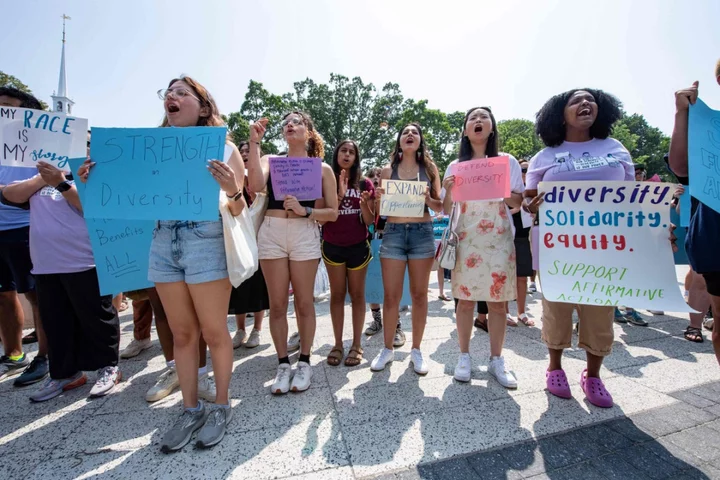
Harvard sued over ‘legacy admissions’ after Supreme Court targets affirmative action
Days after the US Supreme Court struck down race-conscious university admissions, civil rights groups have filed a federal lawsuit targeting so-called “legacy” admissions at Harvard University. The lawsuit, alleging widespread discrimination at the college in violation of the Civil Rights Act, is the latest challenge to the practice of prioritising university admissions for the children of alumni. “There’s no birthright to Harvard. As the Supreme Court recently noted, ‘eliminating racial discrimination means eliminating all of it.’ There should be no way to identify who your parents are in the college application process,” said Ivan Espinoza-Madrigal, executive director of Boston-based Lawyers for Civil Rights, which filed the complaint on 3 July. “Why are we rewarding children for privileges and advantages accrued by prior generations?” he said in a statement. “Your family’s last name and the size of your bank account are not a measure of merit, and should have no bearing on the college admissions process.” The group filed the lawsuit on behalf of the Chica Project, the African Community Economic Development of New England and the Greater Boston Latino Network. Last week, the conservative supermajority on the nation’s highest court ruled that private and public colleges and universities may not consider race as a factor in admissions, striking down the precedent affirmed in the 2003 ruling in Grutter v Bollinger. Civil rights advocates and justices who supported the decades-long precedent, intended to promote racially diverse college campuses, derided what they argue is the court’s ongoing perversion of the 14th Amendment and the foundational concept of equal protection. The latest lawsuit points to Harvard data finding that 70 per cent of the college’s donor-related and legacy applicants are white. So-called “legacy” applicants have a roughly six times greater chance of admission, according to records, pointing to a “custom, pattern and practice” that is “exclusionary and discriminatory” and “severely disadvantages and harms applicants of color,” plaintiffs argued. The complaint calls on the US Department of Education to initiate a federal investigation into Harvard’s application process and for the federal government to declare such practices illegal. “Harvard’s practice of giving a leg-up to the children of wealthy donors and alumni – who have done nothing to deserve it – must end,” Lawyers for Civil Rights litigation fellow Michael Kippins said in a statement accompanying the complaint. Following the Supreme Court ruling, Democratic lawmakers and President Joe Biden urged universities to reconsider their legacy admissions, which he said “expand privilege instead of opportunity.” The Independent has requested comment from Harvard. Read More Biden condemns Supreme Court striking down affirmative action: ‘This is not a normal court’ Biden reveals ‘new path’ to student debt relief after Supreme Court strikes down president’s plan Pence ‘doesn’t believe’ racial inequality exists in schools as he celebrates SCOTUS affirmative action ban
2023-07-03 22:55

Vivica A. Fox says Independence Day sequel was 'not good' without Will Smith
Vivica A. Fox has admitted failing to get Will Smith to reprise his role in the Independence Day sequel was a big mistake
2023-07-03 15:24

'The first day was so intimidating': Anthony Mackie nervously fluffed up his lines on set with Harrison Ford
Anthony Mackie was a nervous wreck on set with Harrison Ford on his first day on set of 'Captain America: Brave New World',
2023-07-03 15:22
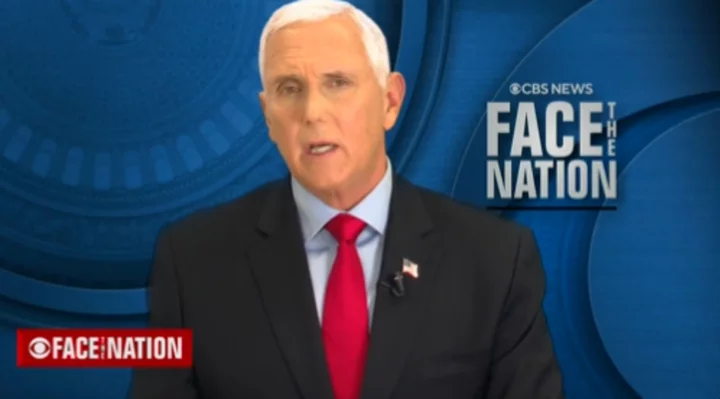
Pence ‘doesn’t believe’ racial inequality exists in schools as he celebrates SCOTUS affirmative action ban
Mike Pence cheered the end of affirmative action in US colleges and universities on Sunday in the wake of the Supreme Court’s ruling outlawing the practice. The former vice president discussed the issue on CBS’s Face the Nation and said that the time for policies aimed at improving outcomes for minority students in general had passed. A candidate for the presidency in 2024, Mr Pence is gunning for the GOP nomination against his own former boss, Donald Trump, and other conservatives like Florida Gov Ron DeSantis and former UN Ambassador Nikki Haley. His comments came as activists and authorities in the higher education field vowed to keep fighting to ensure that diversity would remain a core value in student recruiting. “Fundamentally, do you believe that there are racial inequities in the education system in the United States?” asked host Margaret Brennan. “I really don’t believe there is [racial inequality in US schools]. I believe there was,” Mr Pence said. “I mean, it’s — there may have been a time when affirmative action was necessary simply to open the doors of all of our schools and universities, but I think that time has passed.” His response drew immediate backlash on Twitter, with many questioning whether Mr Pence’s children had attended schools and colleges with diverse student bodies. The three Pence children, Michael, Charlotte and Audrey, attended Purdue, DePaul, and Yale Universities. The Supreme Court ruled on Thursday that universities and colleges may not consider race as a specific factor when choosing to admit individual students. They may, however, continue to take into account how race plays into the individual experiences that those prospective students describe in their applications, such as in personal essay prompts. “[T]he student must be treated based on his or her experiences as an individual—not on the basis of race,” wrote Chief Justice John Roberts for the majority. The suit was brought on behalf of a group of Asian American students who argued that they were discriminated against by admissions staff at Harvard University. Critics of the ruling say it will gut efforts to improve representation of minority students in college classes. College enrollment rates remain noticeably lower among Black and Hispanic students compared to white and Asian American students. In addition, an analysis of US education data has shown that about 40 per cent of Black children attend schools where 90 per cent or more of the students are nonwhite. President Joe Biden responded to the ruling on Thursday after news of the decision broke, telling reporters simply: “This is not a normal court.” Read More Biden reveals ‘new path’ to student debt relief after Supreme Court strikes down president’s plan The Supreme Court risks inflaming the prejudices that America sought to banish In 370 days, Supreme Court conservatives dash decades of abortion and affirmative action precedents Mike Pence claims Biden is rehabilitating the Iran nuclear deal Trump returns to campaign rallies, draws thousands to small South Carolina city ahead of July 4 Biden blames GOP for student loan ruling as 2024 political consequences loom
2023-07-03 05:21

Ryan Gosling pulls out of promoting Barbie in Korea due to 'inevitable circumstances'
Ryan Gosling skipped a Korean 'Barbie' press event on Saturday (01.07.23).
2023-07-02 17:16
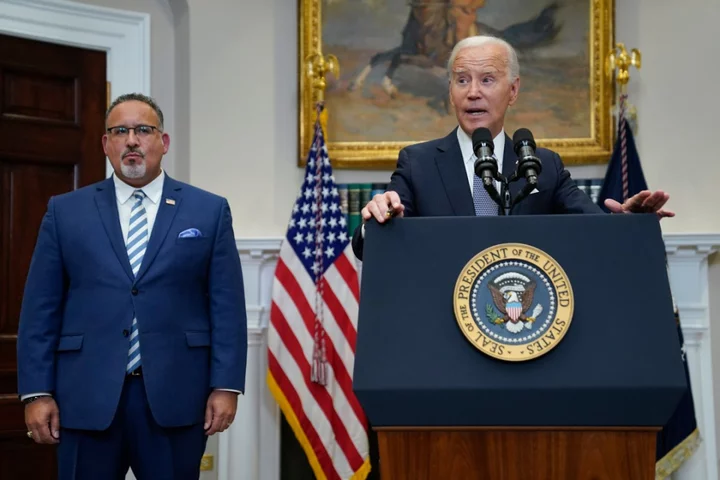
Biden reveals ‘new path’ to student debt relief after Supreme Court strikes down president’s plan
After the US Supreme Court struck down his administration’s plan to cancel federal student loan debts for millions of Americans, President Joe Biden has unveiled a “new path” for relief, one that he assured is “legally sound” but will “take longer”. In remarks from the White House on 30 June, the president hit out at Republican state officials and legislators who supported the lawsuit which enabled the nation’s highest court to strike down his student debt forgiveness initiative, accusing many of them of hypocrisy for taking money from pandemic-era relief programs while opposing relatively meager relief for student loan borrowers. “Some of the same elected Republicans, members of Congress who strongly opposed relief for students, got hundreds of thousands of dollars themselves ... several members of Congress got over a million dollars — all those loans are forgiven,” he said. “The hypocrisy is stunning,” he said. Accompanied by Secretary of Education Miguel Cardona, Mr Biden opened his remarks by acknowledging that there are likely “millions of Americans” who now “feel disappointed and discouraged or even a little bit angry about the court’s decision today on student debt”. “And I must admit, I do too,” he said. Still, Mr Biden reminded Americans that his administration has previously taken actions to reform student loan repayment programs to make them easier to access, and to keep borrowers from spending more than five per cent of disposable income on monthly repayments, and to strengthen loan forgiveness options for borrowers who take public service jobs. The president has directed Mr Cardona to “find a new way” to grant similar loan relief “as fast as we can” in a way that is “consistent” with the high court’s decision. On Friday, the Education Department issued the first step in the process of issuing new regulations under this so-called “negotiated rulemaking” process. In the mean time, Mr Biden said his administration is creating a temporary year-long “on-ramp repayment programme” under which conditions will remain largely the same as they have during the three-year pandemic-era pause in payments which is set to expire this fall. The department’s 12-month “on ramp” to begin repayments, from 1 October through 30 September, aims to prevent borrowers who miss repayments in that time period from delinquency, credit issues, default and referral to debt collection agencies. “During this period if you can pay your monthly bills you should, but if you cannot, if you miss payments, this on-ramp temporarily removes the threat of default,” he said. “Today’s decision closed one path. Now we’re going to pursue another — I’m never gonna stop fighting,” the president continued, adding that he will use “every tool” at his disposal to get Americans the student debt relief they need so they can “reach [their] dreams”. “It’s good for the economy. It’s good for the country. It’s gonna be good for you,” he said. Asked by reporters whether he’d given borrowers false hope by initiating the now-doomed forgiveness plan last year, Mr Biden angrily chided the GOP for having acted to take away the path to debt relief for millions. “I didn’t give any false hope. The question was whether or not I would do even more than was requested. What I did I felt was appropriate and was able to be done and would get done. I didn’t give borrowers false hope. But the Republicans snatched away the hope that they were given and it’s real, real hope,” he said. The Supreme Court’s 6-3 ruling from the conservative majority argues that the president does not have the authority to implement sweeping relief, and that Congress never authorised the administration to do so. Under the plan unveiled by the Biden administration last year, millions of people who took out federally backed student loans would be eligible for up to $20,000 in relief. Borrowers earning up to $125,000, or $250,000 for married couples, would be eligible for up to $10,000 of their federal student loans to be wiped out. Those borrowers would be eligible to receive up to $20,000 in relief if they received Pell grants. Roughly 43 million federal student loan borrowers would be eligible for that relief, including 20 million people who stand to have their debts cancelled completely, according to the White House. Lawyers for the Biden administration contended that he has the authority to broadly cancel student loan debt under the Higher Education Relief Opportunities for Students Act of 2003, which allows the secretary of education to waive or modify loan provisions following a national emergency – in this case, Covid-19. Since March 2020, with congressional passage of the Cares Act, monthly payments on student loan debt have been frozen with interest rates set at zero per cent. That pandemic-era moratorium, first enacted under Donald Trump and extended several times, was paused a final time late last year. Over the last decade, the student loan debt crisis has exploded to a balance of nearly $2 trillion, most of which is wrapped up in federal loans. The amount of debt taken out to support student loans for higher education costs has surged alongside growing tuition costs, increased private university enrollment, stagnant wages and GOP-led governments stripping investments in higher education and aid, putting the burden of college costs largely on students and their families. Read More Supreme Court strikes down Biden’s plan to cancel student loan debts Supreme Court strikes down affirmative action, banning colleges from factoring race in admissions Biden condemns Supreme Court striking down affirmative action: ‘This is not a normal court’ Justice Ketanji Brown Jackson delivers searing civil rights lesson in dissent to affirmative action ruling
2023-07-01 04:48
